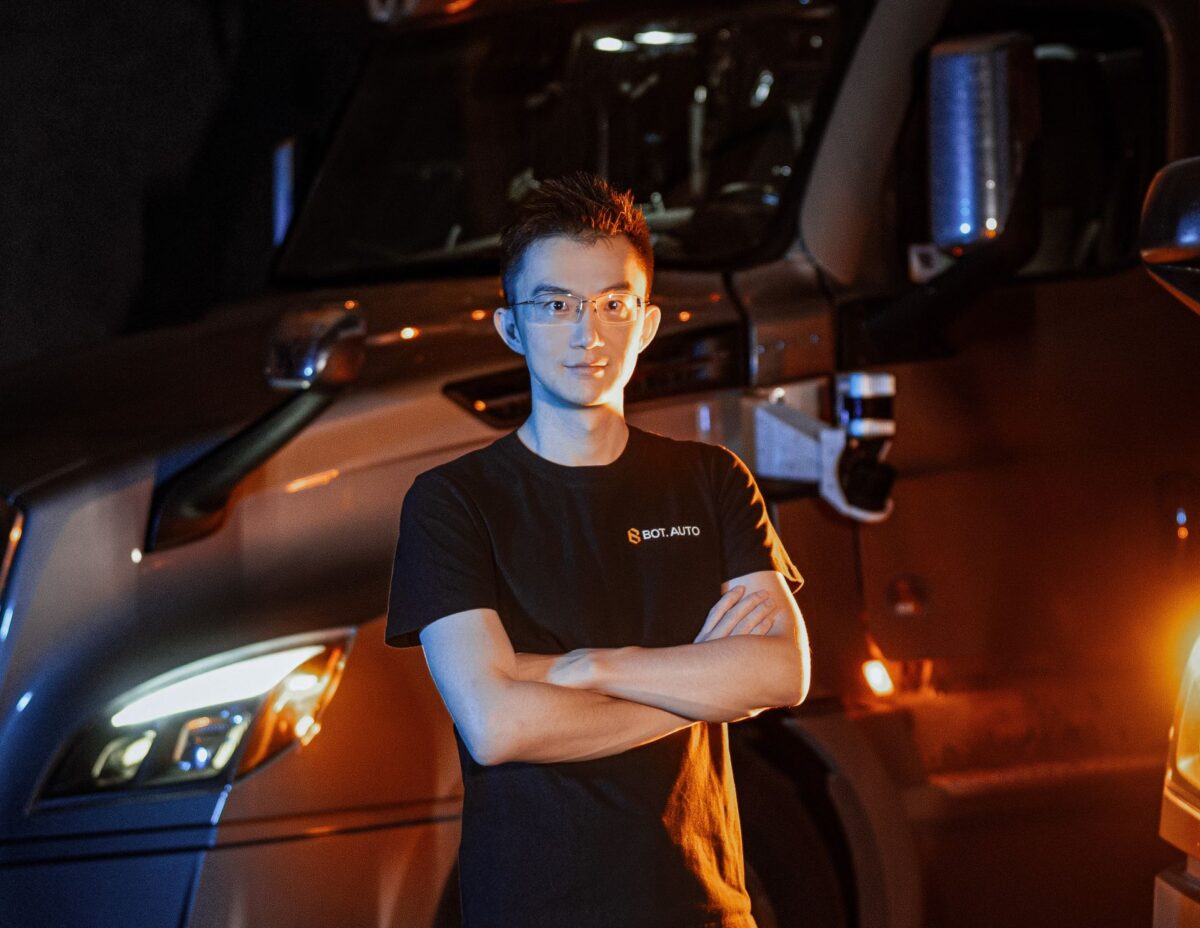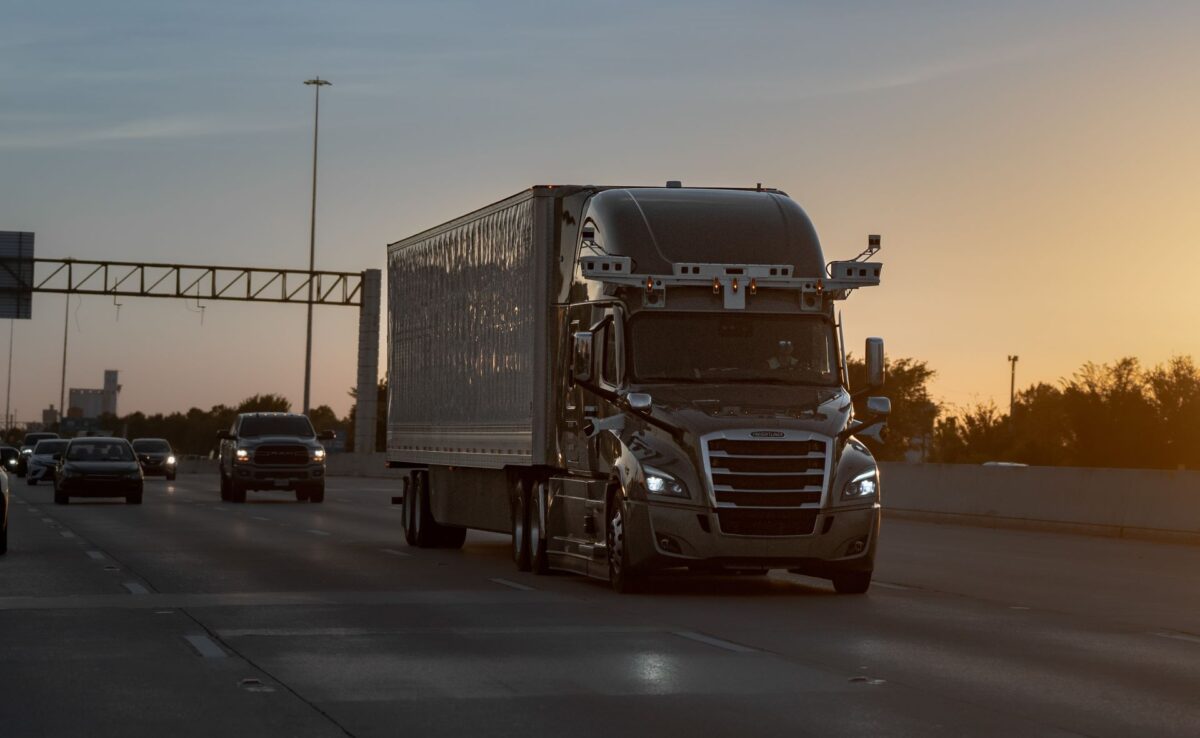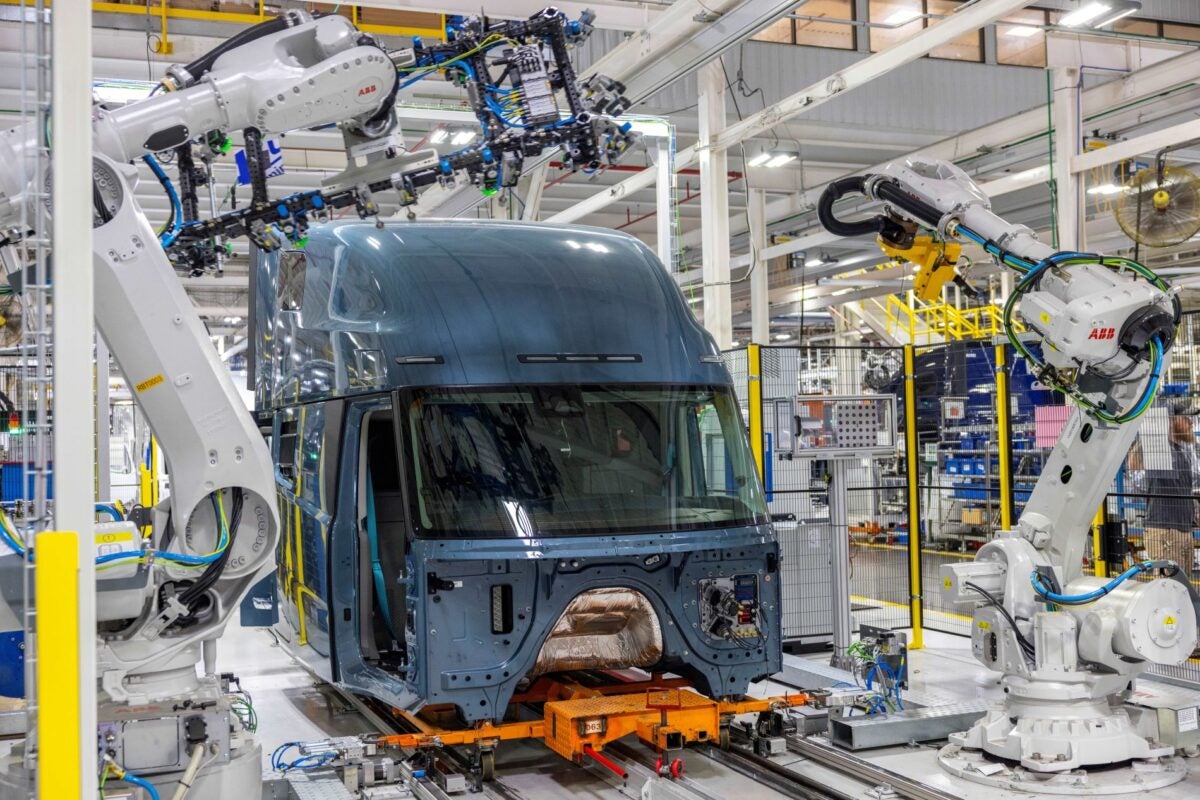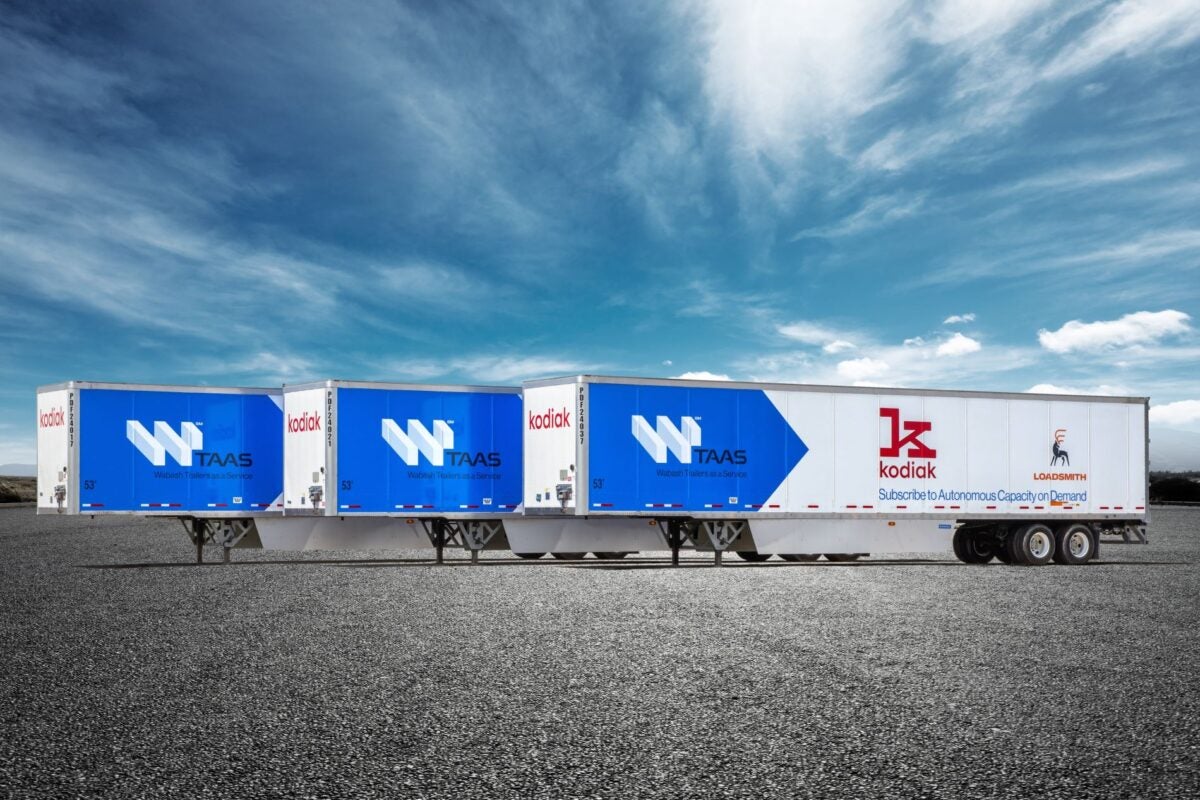Xiaodi Hou was cast mostly as a megalomaniacal villain in the slide of TuSimple from autonomous trucking leader to obscurity. The decline worsened after he took over the company he co-founded in September 2015. Ultimately, a suitable-for-TV boardroom drama led to his ouster.
To Hou’s telling, that is not the whole story. Now, as he launches another driverless trucking startup, Hou expresses a mix of victimhood, remorse and regret.
Bot Auto’s unique approach to autonomous trucking
With a $20 million pre-Series A investment, Bot Auto emerged from stealth last week, describing itself as an AI-based autonomous trucking transportation service. This contrasts from the popular business model where fleets purchase for their own trucks built with autonomous software and hardware.
Initially, Bot is testing a single truck with a version of end-to-end AI software from its base in Houston to San Antonio, about 200 miles. Hou acknowledges the value proposition of long-haul autonomous trucking. Removing the driver and many of the operating costs of trucking will come. He estimates Bot can achieve driver-out operations with fewer than 10 trucks.

A mixed fleet commercial operation – some driverless and some human-driven trucks – could break even with fewer than 100 trucks, he said.
“The value of the product would be the driver’s cost minus the operating cost, minus the customer acquisition cost,” Hou told me in an interview last Saturday. “In my dream world, we want to achieve [an] asset-light operation.”
Competitors offering a software-as-a-service model have higher hurdles, he said.
Three things TuSimple did in its early days that Bot won’t: Scale an operational footprint before its product is ready; hire too many people before it is operationally mature, and avoid overexpansion and taking on partners that distract from its mission.
“We need to transform our company to where we are best at reducing the operating cost of the autonomy system,” Hou said. “The value of the product would be the driver’s cost minus the operating cost, minus the customer acquisition cost.”
Hou’s ‘comfortable cocoon’ as TuSimple CTO
Though he was a co-founder and the early public face of TuSimple, Hou made technology his exclusive purview. That’s the way he wanted it. And that’s why business and banking veterans like Cheng Lu and Patrick Dillon occupied the CEO and CFO roles respectively when the company went public with an $8.5 billion valuation in April 2021.
Looking back, Hou said he made a serious mistake in boxing himself into one discipline.
“I [was] the absolute spiritual leader of the company, which [gave] me a lot of privilege. And I used [that] privilege to build a very comfortable cocoon for me to stay in,” he said.
“I realized the whole direction of the company was wrong [around] November of 2021. But I was in a very tough spot. Either I continue the driver-out program, which consumed 120% of my time, or I just say, ‘OK, let’s postpone driver-out and do something else.’”
Achieving an autonomous industry milestone
Hou pushed ahead with the 80-mile robot-driven pilot of a Class 8 Navistar truck – named for the Marvel comics anti-hero Ghost Rider – in December 2021 because of the internal unity the project created despite “tons of managerial problems.”
“I was so naive in thinking that the world’s best technology can solve other mistakes of the company,” Hou said. “Every rotten tomato is rotten from the inside, and sometimes you still see a very beautiful facade.”
In March 2022, Hou staged a palace coup, removing Cheng Lu as CEO and taking over TuSimple’s day-to-day operations. The company said it was part of the succession plan, but it came without any warning, unusual for a company appreciated by Wall Street for transparency.
The next month, TuSimple disclosed a highway accident involving one of its driver-monitored autonomous trucks which reacted to an out-of-date computer command and crossed a lane of traffic on I-10 near Tucson, Arizona, smashing into a concrete barrier. No one was hurt.
The specter of danger of robot-driven trucks chilled TuSimple’s momentum. Federal trucking authorities assessed no penalties in the incident, and the National Highway Traffic Safety Administration declined to open a separate probe.
This occurred just as Hou settled in to the top spot. Over the coming months, most of Lu’s executive team left the company.
TuSimple palace intrigue
Hou found himself increasingly at odds with his co-founder, Mo Chen, who left his role as TuSimple executive chair in May. In June, Chen announced plans for a hydrogen fuel cell-driven autonomous trucking startup. Little has been heard from Hydron since.
Hou allowed TuSimple employees to do limited work on Hydron projects, which independent directors pointed to in firing Hou as CEO. They said he failed to keep them informed and exercised poor judgment. They brought Lu back as CEO, promising him a $15 million severance payout if he was pushed aside again.
Ten days later, Hou – who along with Chen controlled the voting stock in TuSimple – fired the independent directors. For a time, Hou was the only director. He reinstated Lu as a director and Mo Chen returned as executive chair. TuSimple has since left the U.S. to focus efforts in China, including developing animation and video games.
TuSimple accused Hou of poaching TuSimple employees to join his rumored startup, leading him to quit the board in March 2023. It turns out, Hou had plenty of TuSimple employees from whom to choose. An imploding TuSimple dismissed more than half its workforce between December 2022 and May 2023.
Some who wanted to reunite with Hou needed expedited job offers to retain their U.S. work visas.
Is an IP legal fight looming?
With TuSimple possessing hundreds of patents, many of them authored by Hou, how is Bot avoiding infringement on his previous work has to be asked.
The simple answer is AI. It is using transformers which underlie large language models like OpenAI’s ChatGPT. Bot’s neural network takes data from different sensors to model a vehicle’s surroundings while recognizing objects and traffic signals.

“Our code base totally refreshes [itself] in half a year to one year,” Hou said. “After one year of development, we’re very proud that we could use the new technology. Our truck is on the road” with a safety driver.
Lu told me to watch for TuSimple to take action against Hou and Bot.
“To protect the interests of our shareholders, we will do everything we can to protect TuSimple IP [intellectual property] and trade secrets worldwide, including taking legal action when necessary,” he told me in an email.
Hou dismisses the threat of legal action.
“In the U.S., anybody can sue anybody,” he said. “If we were using TuSimple’s traditional approach, we would be spending our first half a year to one year accumulating data, annotating the data, and spending tens of millions of dollars on data and computing itself.”
Editor’s note: CORRECTS date of TuSimple going public to 2021 from 2001.
Newsom again sides with autonomous trucking against Big Labor
Though his veto of a bill creating rules for AI got more attention, California Gov. Gavin Newsom late last Friday vetoed Teamsters-backed legislation for a second straight year that would effectively ban autonomous trucks on public roads in the Golden State.
Actually, Newsom acted on three autonomous vehicle bills, vetoing two and signing one. He returned Assembly Bill 2286 – effectively the same legislation he refused to sign in 2023 when it was known as AB316. Newsom said the state’s Department of Motor Vehicles has the balance of AV innovation and safety well in hand.
He vetoed AB3061, which would have set up new data reporting requirements for AV companies. Newsom signed AB1777, which would create guidelines for when an autonomous vehicle is in a crash or encounters first responders.
Newsom said 35 jurisdictions have authorized heavy-duty autonomous truck testing, noting that his state was an outlier.
Unsurprisingly, the Teamsters were unhappy.
“Over 90 percent of state legislators support AV regulations,” the union said in a statement. “Regulating driverless cars and trucks is a broadly popular bipartisan issue, as California lawmakers have repeatedly demonstrated. The Teamsters are currently exploring all options at our disposal; this has only deepened our resolve to fight harder, faster, and more aggressively.”
Briefly noted …
Nikola delivered 88 fuel cell electric trucks in the third quarter, bringing to 200 the number of zero-emission sales this year. Shares rose 19.57% Wednesday on the news.
Volvo Trucks North America has started production of its all-new VNL long-haul flagship at its plant in Dublin, Virginia.

Isuzu Commercial Truck of America Inc.’s Class 5 NRR EV is eligible for the California Hybrid and Zero-Emission Truck and Bus Voucher Incentive Project (HVIP) program.
Kodiak has signed a trailers-as-a-service agreement with Wabash for a long-term supply of trailers as it edges close to driverless operations in Texas and beyond.

J.B. Hunt Transport Systems took delivery of 20 Nikola fuel cell electric trucks, expanding its moves into zero-emission vehicles primarily for use in California.
Kenworth is expanding its Chillicothe, Ohio, truck assembly plant again, this time with an $89 million paint system addition that adds 7% to the plant’s physical footprint.
Truck Tech Episode No. 85: How software-defined trucks will make life easier for long-haul drivers
That’s it for this week. Thanks for reading and watching. Click here to subscribe and get Truck Tech delivered to your email on Fridays. And catch the latest episodes of the Truck Tech podcast and video shorts on the FreightWaves YouTube channel. Send your feedback on Truck Tech to Alan Adler at aadler@firecrown.com.










